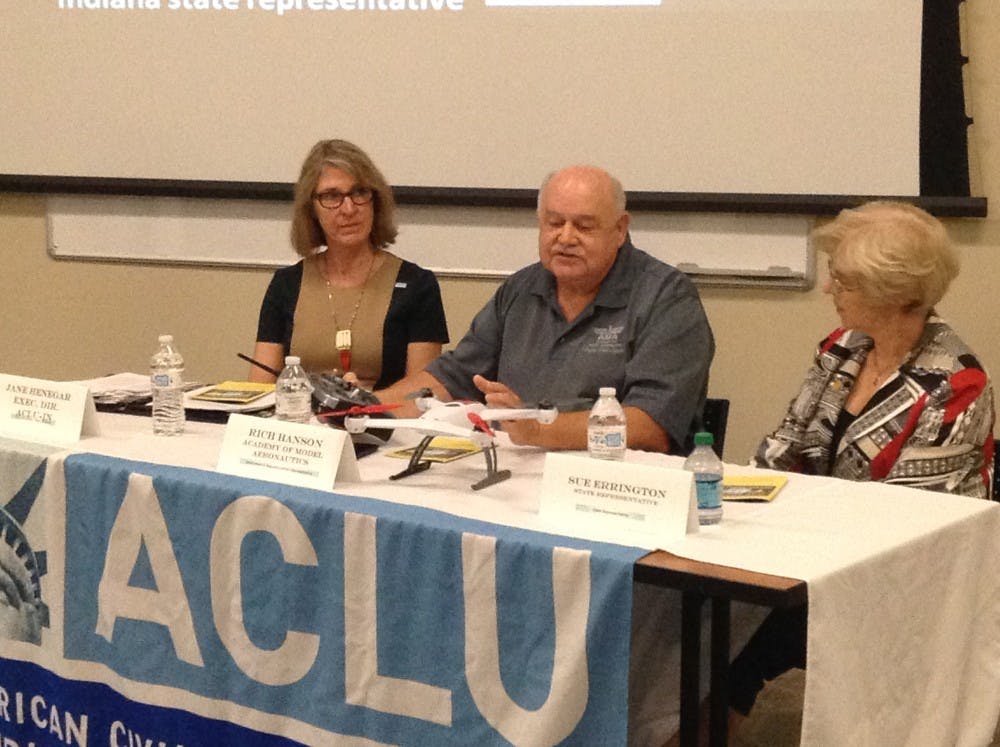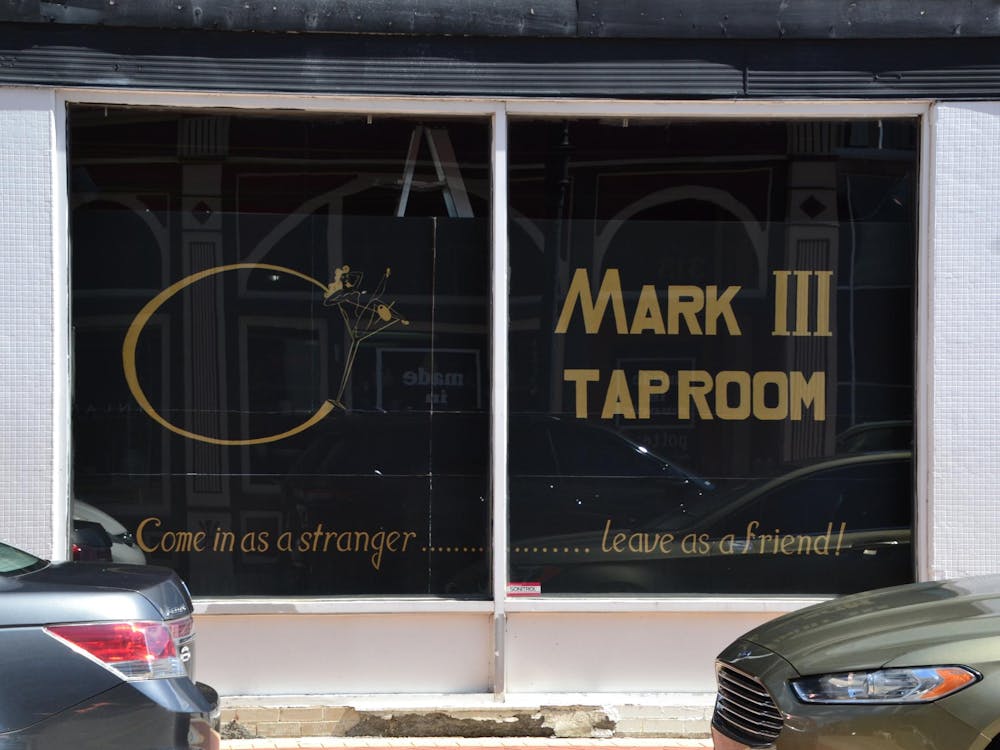|
|
| Associate professor Phil Bremen moderates the panel discussion between Jane Henegar, executive director of American Civil Liberties Union of Indiana; Rich Hanson, a government and regulatory affairs representative for the Academy of Model Aeronautics; and State Rep. Sue Errington on June 4 at the Innovation Connector. The discussion was based on government surveillance. DN PHOTO ALAN HOVORKA |
Governmental surveillance, data collection and where the line should be drawn were the center of discussion for professionals and Muncie citizens Wednesday.
“One of the challenges in our history is that the tools, [or] the powers, the government uses are used in a way that are consistent with the privacy we hold dear,” said Jane Henegar, executive director of the American Civil Liberties Union of Indiana.
One year ago today, Edward Snowden leaked thousands of documents on the National Security Agency activities and methods of surveillance and data collection.
Twenty-five years ago today, an unknown number of people were murdered at China’s Tiananmen Square. It is estimated 500 to 2,600 were killed. The Chinese government has since then taken major steps to hide that part of its history, which has gone so far as to delete references to the event on LinkedIn.
An informal survey conducted by NPR’s Louisa Lim found that 15 out of 100 students from Beijing University recognized the iconic photo of the man in front of a tank, a photo that symbolized the events of the Tiananmen Square protests and massacre.
These two events have one encompassing topic in common at the core of their controversy: surveillance, privacy, information and how governments control it.
|
|
| Jane Henegar, executive director of American Civil Liberties Union of Indiana; Rich Hanson, a government and regulatory affairs representative for the Academy of Model Aeronautics; and State Rep. Sue Errington talk during the panel discussion June 4 at the Innovation Connector. The panel discussion was part of the First Wednesdays Discussions Series. DN PHOTO ALAN HOVORKA |
The Muncie community discussed these topics Wednesday at the Innovation Connector. The talk featured a panel moderated by Phil Bremen, associate professor of journalism at Ball State, and featured Henegar, State Rep. Sue Errington and Rich Hanson, government and regulatory affairs representative for the Academy of Model Aeronautics.
The ACLU’s job is to hold the government accountable to those promises it makes to its people about their rights, Henegar said.
“The Fourth Amendment basically says the government can only get in our business when they have a good reason to,” she said. “There are standards, probable cause, et cetera. If you are going to find out personal stuff about us we aren’t already putting out on Facebook, then you have to get a search warrant.”
In general, society has bought in to the notion that a democracy thrives when people have access to information, Henegar said.
“We have put in all of our chips that more information is better, that we trust ourselves and each other in figuring out what information is [important to us],” she said.
The line for what information should be accessible to the government and other entities is vague, she said.
“These issues are subject by subject,” Henegar said. “[It’s] really hard to draw a definitive line in dealing with privacy and surveillance.”
She emphasized the severity of this issue by asking, “What would it have been like to live in different time periods where this level of information was available?”
“Imagine if this large amount of information was available to Sen. [Joseph] McCarthy in the McCarthy Era,” Henegar said.
The problem with discussing this topic stems from the lack of information, especially in the classroom, said Brandon Waite, assistant professor of political science at Ball State.
“Conversation falls apart and becomes theoretical because of a lack of information on what’s being done in the local community,” he said.
Henegar agreed with Waite’s thoughts.
“I think the lack of information on [surveillance] is being used in our communities,” Waite said. “We let national discussion influence with what’s going on in our backyard.”
Waite said this leads to the perception people have on how local and state governments operate.
“[People think] if this is what is going on at the national level, [local] must be doing the same — local police must be taking pictures on Sue Errington’s Facebook,” he said.
In order to fix this perception, Waite and Henegar said things need to be figured out on the federal level.
“The unknown inspires fear,” Waite said.







